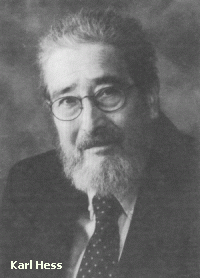|
Brad Linaweaver |
|
|
by Joseph O'Neill
Some remarks on our old friend Brad. Of the four “Unindicted Co-Conspirators” who founded KHC in 1994, Brad now joins Samuel Edward Konkin III (SEKIII) in anarchist-libertarian Valhalla. Mike Everling and Kent Hastings still proudly fly the black flag. Losing Brad is a grievous blow to our Club and to the world of libertarian-conservative politics and science fiction. Above all, Brad was a creative, skillful, and funny science-fiction author. He wrote a delightful short story, for example, called "Chump Hoist." "Chump Hoist" -- what a concept! It's what the carnival people, the "carnies," call the Ferris wheel. The "chumps" are us; the suckers who surrender hard cash just to spin around. If I recall right -- and I may not -- in the story, you got on the chump hoist and it took you back in time or into another dimension or something. Brad liked the carnies. His story made you think about them, their contempt for the "rubes," their rationalizations for ripping them off, the rubes' scorn for the carnies as perpetual outsiders. Brad's work is full of human understanding. Brad also had a clear-eyed understanding of his own work. The Free Space anthology, for example, is a marvelous collection. Fabulous tales by J. Neil Shulman -- whom we also lost just days before Brad -- and Victor Koman. A great short story by KHC member John DeChancie. Contributions by libertarian and science-fiction luminaries like Ray Bradbury, Poul Anderson, L. Neil Smith, even Robert Anton Wilson. But, like many anthologies, one crappy story slipped in. And Brad readily admitted that -- because he never let his ego get in the way of his judgement. One bad story notwithstanding, Free Space counts as major science fiction literature and expresses high level libertarian thought. Moon of Ice, of course, was Brad’s classic. Novel and novella, it won the Prometheus and Nebula Awards. As many will know, Moon of Ice was an alternate history, what would happen if the Nazis had won WWII? According to Brad (though I think not completely correctly), he was the first to come up with this premise, before the great Philip K. Dick's Man in the High Castle and certainly before Robert Harris's Fatherland, which was made into a TV movie. Brad told a humorous back story about his early efforts to get this book filmed. He went around to Hollywood producers pitching the original "Nazis win WWII" idea and they all said, "Get lost, kid, you’re wasting our time!" But later, after Harris's stuff sold, Brad again pitched the idea to the same people, this time packaged as a "Fatherland knockoff." And the producers said, "Hhm! Great idea! Let's sign this kid on to develop something!” The lesson was, it can be easier and more profitable to milk a successful formula than to foster innovation. Alas, Moon of Ice never did get filmed, but Brad did strike several successes with the Industry, notably book adaptations of the Sliders, Doom, and Battlestar Galactica franchises. Reading one scene in Moon of Ice particularly impressed me with Brad's literary technique. Leading up to the scene, the storyline was trailing Joseph Goebbels covertly investigating a cabal of other Nazis. You followed him as he was slinking around … and climbing over a wall into a secret compound… and narrowly missing getting caught by the guards … and … and I suddenly realized -- "Wait! Brad’s got me -- rooting for Goebbels! Not even for Hitler, for that rancid monkey Goebbels!" You think der Führer made the ultimate sacrifice for the Reich, committing suicide in the bunker? Goebbels went "one step beyond," not only did he commit suicide, he -- poisoned his children! Never say you can't go, "one step beyond." And what was Brad telling us by making Goebbels the hero? First, he was telling us that, horrible as Hitler was, there were even worse Nazis (Himmler, Ludendorf … ), whom many people don’t know about. More importantly, he was telling us that narrative is powerful; it can turn around your notion of good guy and bad guy without you even noticing, just by changing perspective. And what better vehicle for that than Propaganda Minister Goebbels? The book even begins with a famous quote from Orwell which most readers don't realize is intentionally falsified! This underlines the centrality, and subtlety, of the propaganda that has influenced most of our lives day-in/day-out for decades. America does well in Moon of Ice. After losing WWII, Truman is not elected to a second term ("Dewey beats Truman!") and the country evolves into an anarchist utopia. The text offers an answer to the habitual critique, "In anarchy, who will pave the roads?" Well, in this post-WWII America, nobody paves the roads, everyone just puts monster tires on their pick-up trucks! Hence, what is commonly held to be a "slam-dunk, no-brainer, conversation-stopper" argument actually merely reveals a lack of imagination. Brad was steeped in the debate on all forms of political organization and their practical implementations. For, in addition to being a supreme prose artist, Brad was an incisive political theoretician. AnarquÍa, written with Kent Hastings, was the first alternative history of the Spanish Civil War and once more a masterpiece. Propaganda is again pivotal in AnarquÍa. Brad once told another story about Goebbels, and his propaganda radio broadcasts during the Spanish Civil War. Goebbels took pains to make the broadcast content 100% accurate -- except one key fact would be reversed in polarity. And that made all the difference. And that’s the sort of thing we should be looking for in propaganda emitted by our rulers. AnarquÍa is conceptually glorious and graphically intricate. Brad and Kent present the point-of-view of each major faction -- Fascists, Socialists, Communists, Traditional Catholics, and, of course, Anarchists -- in depth, with unexpected twists and turns, and on its own terms. Like in Shakespeare, we encounter multiple mindsets, each forcefully argued. Brad was not the typical sleazebag rhetorician of today's discourse, who never admits to occult internal contradictions in his argument and never disabuses you of misconceptions, if they work in his favor. No! Brad didn’t seek blind obedience or reflexive adherence, he genuinely wanted and empowered you to think for yourself. Brad’s own political allegiance vacillated between libertarianism and conservatism. On the conservative side, he retold with contagious pride how his father had voted against FDR all four times! "You mean, you're not going to vote for … the President … in … time of war!" "No, screw you! I’m voting the way I want! That’s what America is all about!" When his dear father finally passed away, Brad inherited his luxury sedan. In the aftermath, Brad popped open the trunk to discover a bag of splendid sticks! "Golf clubs!" declared Brad, "Now I am, finally, a real Republican!" Golf and being an FDR-hater made Brad a conservative. Being a Churchill-hater -- which I suspect he was -- made him a libertarian. Was Brad a Hitler-hater? I suspect he would regard that as a waste of time. There are already millions and millions of people out there doing that job. Save your hatred for other evil people, ones unjustly esteemed by mainstream convention. Brad saw the Nazis as absurd because they thought so thoroughly in racial categories. But worse than the racism of the Nazis was their authoritarianism, a trait they share with the Soviets, the Anglo-American globalist elite then and now, DLC Democrats, the Neocons, and today’s PC Left. In pretending the opposite is true, these last pursue their insidious, invasive, irrational program to dismantle traditional cultures and to slow bleed human liberty. On the libertarian side, Brad, famously and laudably, recanted his original support for the 2003 Persian Gulf War. Rather than an Ayn Rand or Milton Friedman libertarian, Brad claimed to be a "Ray Bradbury" libertarian. With that, he may have meant someone less bound to corporate power and less rigidly doctrinal. I always looked forward to seeing Brad at KHC, and especially to his humor. One time the great Paul Krasner, whom we also lost this year, was our speaker. Among many other things, Paul had been -- at least for a year -- Editor of Larry Flynt's Hustler Magazine. Naturally, Paul let in all kinds of hilarious radical political content. Introducing Paul's speech, Brad said, "You know how some people say, 'Oh, I don’t look at the dirty pictures in Playboy, I just read it for the articles'? Well, when Paul was Editor, I read Hustler for the articles!" Brad was not someone I laughed along with politely, he was truly raucous. I couldn’t help but laugh. I especially miss Brad when I think about things I'd like to share with him but no longer can. Items he might find interesting or insightful. Jokes he might get that others might not. For example, for a long time I’ve been meaning to tell him about: O’Neill’s Three Laws of Politics, which
are: I think Brad would have approved of the Three Laws, but now we’ll never know. To wind down, like other matters in life, Brad took religion seriously, but not too seriously. He had read the Old and New Testaments cover-to-cover -- twice -- and knew Scripture in depth. By birth, he was Episcopalian, which is not a strict denomination, and Brad was impious even by those standards. He had a great story about that. Brad was in his 30s and had gone back to college for an MA or something. Parsimony dictated that he move into a dorm with several younger male students. At first, Brad felt out of place, but he readily adapted to Bohemian collegiate mindlessness. One Sunday morning, after a wild night of partying, Brad woke up to a phone call from William F. Buckley himself! At first, Brad thought it a prank, but rapidly realized it was for real. You see, Brad had written a letter to the editor of National Review, which Buckley was the well known Editor of (much to the benefit of the National Security State). Buckley was so impressed with the letter that he had called the author personally to congratulate him on its publication. So, after a few cheerful words, Buckley, the famous Catholic, ended the call saying he had to shuffle his family off to morning Mass. But he paused a moment to ask, "And what is your confession of faith, young man?" To which Brad replied bashfully, "I'm a lapsed Episcopalian." To which Buckley replied, "That is not going very far." I'm a retired Catholic, a reverent agnostic. But I did say a prayer for Brad's soul when I learned of his passing, That very night he came to me in a dream, traditional venue for the departed. In the dream Brad was youthful and full of energy, as always. We were riding a bus together back from a Libertarian convention and had transferred to another bus before I realized that I had left my luggage behind! We got off at the bus terminal and Brad said, "You also lost your wallet," and handed it back to me, all bills and cards intact! Then he pointed to the Lost and Found where I could look for the bag! It seemed Death had scarcely dimmed Brad’s essence. His legacy remains to reveal how much treasured freedom we've lost, to help us win it back, and to teach us to help ourselves, be it to raise up a Yeoman's Paradise on Earth or to navigate spiritual waters onto that Land Beyond Summer, that anarchist-libertarian Valhalla, out there in Free Space! Thank You. |

